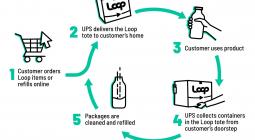Festival organisers present their efforts towards going green.

Festival organisers have already started banning plastic bottles and diesel generators. Although this is positive, there is more to being sustainable.
Shambala, organized by eco-enthusiast Chris Johnson, is a music festival with an estimated 15 000 people attending annually. Johnson claims, “We’re a purpose-led organisation, the point of it existing is to contribute something to the world, and the environment is an important part of our outlook.”
The festival runs on a 100% renewable power source comprised of vegetable oil and solar power. Johnson has also banned plastic as well as removed meat and fish dishes from the food options available.
Regarding the transport system to the festival, it has been noticed that 1% of festival goers arrive by bike and 25% make use of the coach. Although this may seem an insignificant amount, 80% of a festivals carbon footprint derives from transport and it is therefore encouraged that people make use of public transport or lift schemes to reduce this percentage.
This year, there is cultural debate focusing on how to make festivals greener. The major music festival, Glastonbury has already eradicated the ability to purchase single-use plastic at their event, instead supplying their 200 000 audience members with 850 taps providing fresh water from reservoirs.
Emily Eavis, Glastonbury Co-Organizer said, “The ban will save the million bottles that we would have otherwise sold”.
Sixty of some of the biggest festivals, Reading and Leeds being two of them, have already announced their ‘plastic free by 2021’ goal. This means prohibiting the use of single-use straws, cutlery and bottles. Although this is a positive advancement towards sustainability, Claire O’Neill, Co-Founder of ‘A Greener Festival’ organization, indicates that our concerns should be directed towards transport, tents and toilets.
Ian Fielder who is the operations director at 'Green Man' festival expresses the importance of clearing away tents from campsites post festival. Fielder works closely with refugee charities, donating abandoned tents to those who may need them although the issue of these tents being difficult to recycle still stands.
Many festivals are trying to do their part. Houghton festival has introduced the use of compostable toilets while well-known event, Wireless, has converted to using vegetable oil, biofuel and hybrids to source power. A festival called BlueDot has even incorporated climate crisis panels into their programme.
Ben Robinson, BlueDot Festival Director said, “Of course, building mini-cities in fields every summer has an environmental impact, but festivals can prompt long-term behavioural change. It’s not just about hedonism. People are open to new ideas and it invites them into a different conversation. We cause a conscious cultural shift – using less plastic, reducing waste, living sustainably. If these can be achieved on site, they can make a difference long after people have gone home.”
27 June 2019





